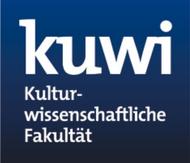Forschung
Forschungsschwerpunkte und methodische Schwerpunkte
- Soziolinguistik, Pragmatik
- Sprachliche Praktiken
- Multimodale Interaktion
- Zugehörigkeit und Identifikation
- Mediatisierte Diskurse
- Post- und Transhumanismus
- Mehrsprachigkeit, Sprachkontakt und Sprachwandel
- Konversationsanalyse, Narrativanalyse, Linguistische Diskursanalyse, (digitale) Ethnographie, Korpuslinguistik
Dr. Rita Valletin
(derzeit beurlaubt)
- Europa-Universität Viadrina | Große Scharrnstraße 59 | 15230 Frankfurt (Oder)
- vallentin@europa-uni.de
Aktuelle Forschungsprojekte und Forschungsinteressen
This research project is concerned with linguistic practices of human-machine relations in diabetes management. People living with type-1 diabetes are increasingly co-coordinating their diabetes management with medical devices – so called (hybrid) loop systems – that continuously measure blood sugar levels and help regulating the insulin supply. Based on interviews with users of these devices, the study looks at these discursive (re)productions of particular categories, positionings and attitudes towards the machines. Additionally, questions of trust in the technology and possible shifts in the role of the 'human' in diabetes management are addressed. The findings connect to larger post-humanist questions by exploring what it means to be 'human' in the context of a medically essential human-machine interaction, and how participants linguistically rework the boundaries between themselves and the devices. This not only contributes to the emerging field of post-humanist linguistics (Pennycook 2018), but also connects to medical research on diabetes technology from a discourse-linguistic perspective that seeks a stronger patient focus.
In this research project I investigate different communities of practice (students and professionals in Berlin’s start-up scene) who use English as a lingua franca in educational and professional settings and whose members have diverse linguistic backgrounds. The research focuses on emerging linguistic practices within the communities and how tasks, discussions and socializing are interactionally realized, given the online setting, the specifics of the lingua franca and the interplay with other multimodal resources in interaction.
As member of the COST action "Language in the Human-Machine Era" (LITHME) Working Group 8 – "Language variation/change/contact, pragmatics, interaction" I'm especially interested in the following questions: How do interactional patterns of human interaction change with the use of different technologies? How is language use influenced by medium variation? Does augmented interaction with voice-based and script-based technology influence human spoken and written interaction which is mediated by technology?
Link: http://lithme.eu/
The Covid-19 pandemic that has a grip on the world since the end of 2019 yielded significant changes and renewals in the semiotic landscapes globally. An avalanche of signs related to the virus appeared in institutions, shops, restaurants and other locations of public life. They regulate behavior, display sanctions in case of non-compliance or point out specific rules related to the establishment. A corpus of Covid-19 related signs was collected between March and August 2020 in Berlin, especially the neighborhoods of Friedrichshain, Neukölln and Prenzlauer Berg. The signs show an interplay of multilingual, graphic and intertextual features. A semiotic analysis reveals an emotive, often witty and humorous translation of the official rules that is tailored to an implicit portrayal of the institutions' or shops' (corporate) identity through linguistic and graphic design. In these cases, the interactional meaning of the sings is broadened from directive elements regarding behavior during the pandemic by creating an emotional attachment and possible identification of the interlocutor with the businesses. Thus, the inevitable Covid-19 signs serve to establish "common ground" and to strengthen social ties between the businesses and their customers.
In collaboration with the Universidade Federal Fluminense in Rio de Janeiro and the Universidade Federal da Bahia in Salvador da Bahia a corpus of interviews with members from five Quilombo communities in Bahia and one Quilombo in the state of Rio de Janeiro is compiled. Within these interviews narratives of the communities' history, of belonging and non-belonging with the majority population in Brazil and of struggles of recognition emerge. A narrative-as-practice approach to these accounts of Quilombolas will shed light on the participants positioning in Brazilian society and the linguistic resources they use to do so.
Wissenschaftstransfer
Mai 2023 - Podcast Nr. 308 der "Zuckerjunkies" – Selbstwahrnehmung bei der Nutzung von DiaTechnik.
September 2021 - InnoX Science Festival 2021, Innovation Hub 13, Expertin für Fragen von Bürger*ìnnen bei „Brandenburg fragt“.
Januar 2019 - Podiumsdiskussion zum Thema "Los dilemas de la educación intercultural" im Ibero-Amerikanischen Institut, Berlin.
Dezember 2018 - Ringvorlesung Zentralinstitut für Lateinamerikastudien (ZILAS), Katholische Universität Eichstätt-Ingolstadt, Vortrag: "Quilombos in Brasilien: Zwischen Widerstand, Bewahrung und Anpassung".
Oktober 2013 - Science-Slam im Waschhaus Potsdam, Slam "My Language is my Prison… Können wir nur das denken, was wir sagen können?".
Mai 2013 - RBB-Science Slam Wissenschaft Bühnenreif, TV-Austrahlung zum Slam "'Wir und die da' - Wie wir mit Sprache Gruppenzugehörigkeit herstellen".
Dr. Rita Vallentin
(derzeit beurlaubt)
- Europa-Universität Viadrina | Große Scharrnstraße 59 | 15230 Frankfurt (Oder)
- vallentin@europa-uni.de
